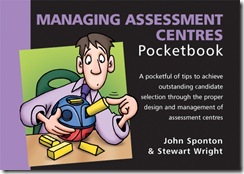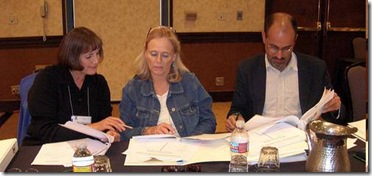One of the most daunting tasks for a new manager is conducting their first job interviews. The stakes are high: get it wrong, and you may be stuck with a capable – but not that capable – colleague for years. Get it right, on the other hand, and you have not just added a huge asset to your organisation, but you will probably make your own life easier.
So what can you do to improve your chances of securing the right candidate?
This is the final of three articles that Management Pocketblog will offer you:
- Preparing the Ground
Increase your chances of success well before the interview - Getting it Right
Hints and advice for conducting and effective interviews - Polishing your Process
Tips and tricks of the trade
Polishing Your Process
As in all matters, details are important. So let’s look at a few of them.
Checking Facts
Sadly, exaggerating, reinterpreting, and outright lying about qualifications and experience are facts of the recruitment process. So don’t get caught by them. If qualifications matter, make it a condition that candidates bring original copies for you to inspect. Ask questions about experience and listen carefully to be sure the answers are plausible and internally consistent. Always take up references before finalising an appointment. Where possible, speak to the referee as well as getting a written statement. It’s easier to hear hesitancy and reservation in the voice than detect it in writing. And some people are fearful that an honest reference could get them into trouble, so a written reference can miss out important concerns.
Horns and Halos
Warning: this advice may be impossible to follow, but that doesn’t mean you should not make every effort.
First impressions are powerful – whether from the application documents or the minute they walk in the room. If your first impression is positive (a neat application document, the same set of A levels as you, an upbringing in the same town as your best employee, the right colour shirt or blouse…) you will be constantly noticing evidence of their capability and mossing all but the boldest evidence of weak points. This is called the ‘Halo Effect’.
If your first impression is negative (a scruffy application document, a mis-placed apostrophe, an upbringing in the town you hated when you visited, the wrong colour tie or scarf…) you will be constantly spotting more and more evidence to justify that initial assessment. You will also miss all but the strongest evidence of real talent. This is sometimes called the ‘Horns Effect’.
These cognitive biases – so well documented in Daniel Kahnemann’s wonderful ‘Thinking, Fast and Slow’ – can lead to poor judgement. Simply being aware of them can help but it is not enough. You must strive to look for evidence that counters your first impression and keep focused on seeking the objective data you planned in your preparation for the interview.
Mini Me
It’s natural. You want rapport with your staff, and you most easily build rapport with people like you. So it is an easy trap to fall into, to hire someone just like you. You’re good at your job, aren’t you? So it stands to reason, surely, that someone just like you will also be good at their job.
No, it doesn’t. And more to the point, someone not like you could be equally good – or better. Diversity is what brings real strength to a team, so make every attempt to see the strengths of candidates who are different to your current team, to counter your inevitable bias to recruiting more of the same.
Cod-Psy
Psychology is everywhere, and we all learn bits and pieces along the way. But if you are not an expert, leave your amateur analysis to the social settings of the pub, cafe and dinner table. Not only will it not help with your recruitment, it may well get you into all sorts of trouble.
Data Protection
Data protection can also get you into trouble – as can Freedom of Information if you are in the public sector. SO be very careful to record your notes of interviews accurately and without any inappropriate comments or doodles. Ask yourself, how would I feel if this were on the front page of tomorrow’s newspaper? If the answer is anything other than ‘I’d be happy – I could back up anything there with real evidence I gathered at the interview’ then think again.
What Else?
One of the most valuable questions for anyone whose task it is to learn from another person. You cannot possibly ask all the important questions every time. So a good question to end with is:
‘What else would you like to tell us, before we finish this interview?’
or
’What question would you like us to have asked you
– and how would you answer it?’
Management Pocketbooks you may enjoy
The Managing Recruitment Pocketbook
Or, if you are expecting to be on the other side of the table…




